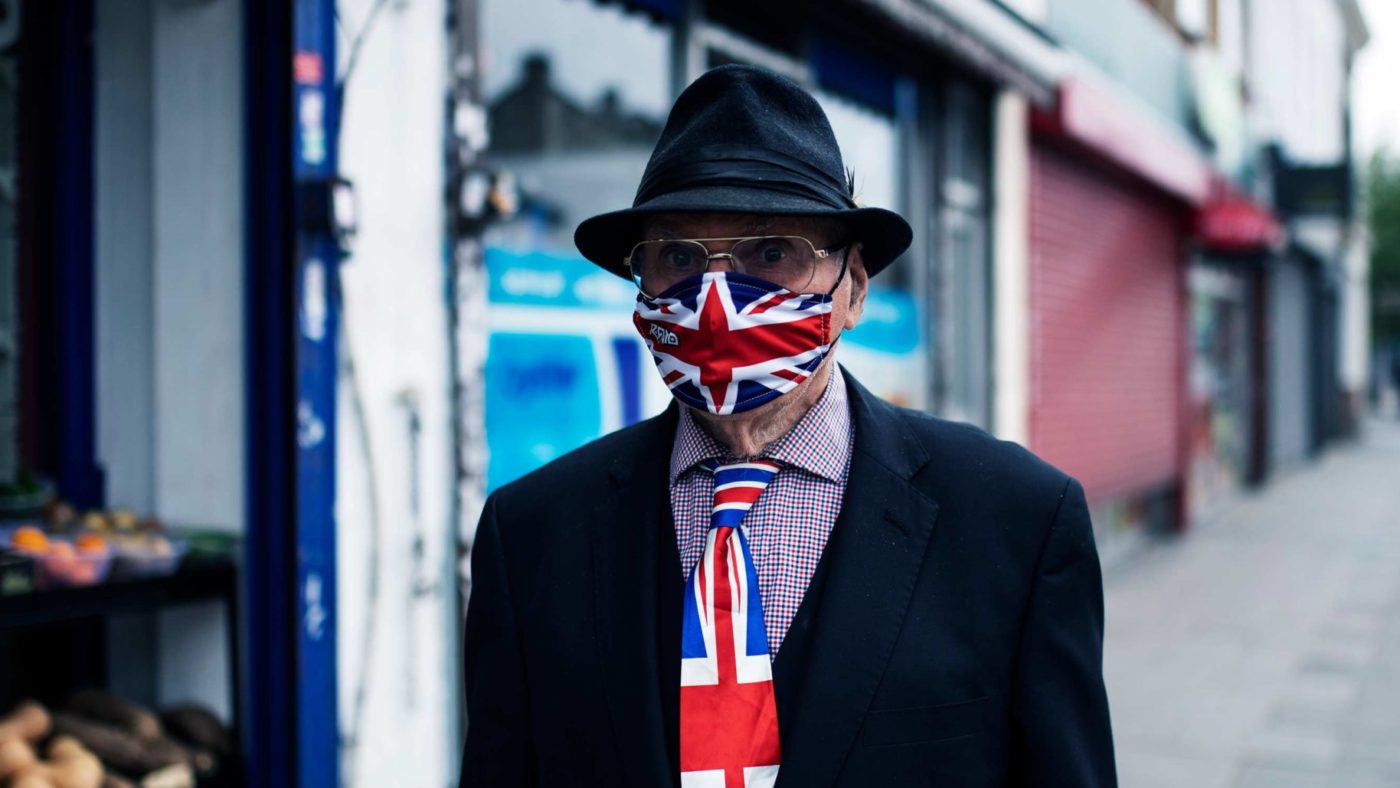Just over 100 days ago, England’s Deputy Chief Medical Officer Jonathan Van-Tam claimed that “there is no evidence that general wearing of face masks by the public who are well affects the spread of the disease in our society.” In January, Public Health England took a break from failing to scale up testing to declare that there was “very little evidence of widespread benefit from [mask] use outside of these clinical settings”.
This, as we always knew, was untrue. Covid-19 is spread by viral shedding in the upper respiratory tract, even without symptoms. The layers of material in a mask – whether an N95, surgical or cloth mask – make it extremely difficult for a viral particle to escape. It is like putting a very drunk person into a maze. They are more likely to bounce around the walls and collapse in a heap than find their way out.
The evidence on mask-wearing is overwhelming (see meta studies here, here, here and here) and countries with higher mask-wearing have lower Covid-19 mortality. Indeed, each additional mask, by preventing spread, could be worth US$3,000-$6,000, according to a Yale study.
At best, opponents to masks claim there is a lack of gold-standard randomised control trials (RCT) to support public mask-wearing. But this claim confuses lack of RCT evidence with evidence against. It is difficult, if not near impossible and ethically questionable, to construct an RCT for masks in the middle of a pandemic. The evidence against mask wearing is practically non-existent, while almost every study indicates there could be some benefit.
In any case, the lack of RCTs did not stop governments from encouraging hand washing and social distancing, and taking extreme steps like closing schools and businesses. The ‘noble lie’ against masks was driven by fears it would limit supplies for the healthcare workers. Notably, the Government’s advice on masks changed in May, just as concerns about personal protective equipment shortages were dissipating. As has been typical throughout this crisis, ‘protecting the NHS’ was put before ‘saving lives’. But a noble lie is still a lie – and lies diminish trust in government and undermine our open and free society.
The advice backfired. Not only did it likely cost lives during the peak of the pandemic, it slowed the development of domestic mask supplies for the public and created a powerful norm against mask wearing.
Two months from the change of guidance on masks, the United Kingdom still has among the lowest mask-wearing levels in the world. Less than two-fifths (38%) of Brits are wearing a face mask when in public, according to YouGov. This compares unfavourably to the United States (74%), Italy (84%) Spain (88%), or Singapore (90%) who reached majority mask wearing by at least April. These countries all began encouraging mask-wearing much earlier.
Ideally, mask-wearing would be a social norm, with individual establishments setting appropriate entry rules for their premises. Sadly, due to earlier misinformation, the development of this norm is now impossible. The Government will now require mask-wearing in shops – enforced by the police issuing £100 fines. This is only necessary, of course, to correct their earlier blunder.
Meanwhile, a new brand of ‘mask sceptics’ argue that mask-wearing is an infringement on personal liberty. While Government rules enforcing masks is less than ideal from a freedom perspective, this is simply not the hill on which uber-libertarians should choose to die. Even the most stringent supporters of personal freedom accept limits on personal action when they have regard to others. As this site’s editor-in-chief Robert Colvile noted, you do not have the liberty to inflict a potentially fatal disease on others. Just like vaccinating your children before they attend school, it is life-saving common decency to wear a mask.
The other argument against masks is that they could discourage shopping on struggling high streets. If the cost of public safety is a small reduction of in-person shopping it is likely a worthwhile trade off. In any case, it is just as likely mask-wearing will have the opposite effect. The knowledge that fellow patrons will be wearing masks could provide additional assurance that shopping is safe. Or these two effects could cancel each other out, with little to no effect on footfall.
The mask fiasco highlights the need for openness, truth and honesty. Sadly, “public health” has become dominated by pseudo-scientists more focused on running our lives than protecting our wellbeing. They thought the uneducated masses were simply too dumb to be told the truth: masks work but medical-grade ones should be reserved for health workers.
Notably, SAGE has over two dozen behavioural psychologists, including an entire subcommittee dedicated to behavioural responses. They come from a field, psychology, in which at least half of papers do not replicate. These behaviourists cautioned against encouraging social distancing in early March because of unfounded fears about “lockdown fatigue”. We could have had an earlier, shorter shutdown, minimising loss of life and economic damage, but instead the Government waited. This advice cost tens of thousands of lives.
The course correction on masks sadly comes too late for many. But it is an important reminder about the danger of uncontested government advice. We should not make the mistake again in future.
Click here to subscribe to our daily briefing – the best pieces from CapX and across the web.
CapX depends on the generosity of its readers. If you value what we do, please consider making a donation.


